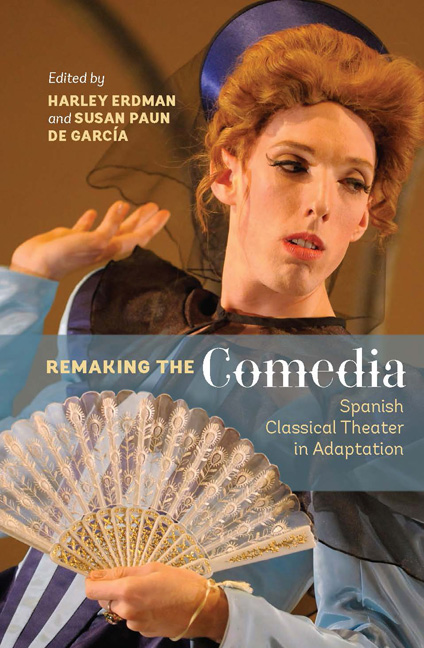Preface
Published online by Cambridge University Press: 05 December 2015
Summary
The 400-year stage history of the Comedia has often been a history of these plays in freewheeling adaptation—or, as the Spanish put it, refundición. Literally, this word means “recasting” (as in metal) or “comprehension” (as in the inclusion of previous elements into something). In the context of the Spanish Comedia, however, the word, in use since the eighteenth century, has the specific meaning of a theatrical reworking of a playwright's script, usually in which the original has been reshaped, altered, re-imagined, or transformed in some way so as to become something new for a contemporary audience. In today's parlance, we might call these “remakes.” This book examines the variety of ways in which Spanish classical theater has been remade over the years—and is still being remade around the world today. We contend that the stage history of the Comedia is very much a history of the plays-as-remakes, and that the rubric of adaptation is a particularly useful one for consideration of the plays in performance.
Our contention is not new. Certain Spanish critics maintain that the Comedia is a theatrical system in perpetual renewal, always being remade, even from its inception. Golden Age playwrights such as Lope de Vega and Calderón de la Barca might be called first-generation remakers, imitating and reworking their models. Eighteenth-century writers such as Zamora and Cañizares constitute the second generation, their transitional period intimating new ideology and structures in the comedias they produced. The regular use of scenic décor as well as the influence of neoclassicism gave birth to a third period of adaptations beginning near the end of the eighteenth century and continuing through the nineteenth. Though the word refundición has not frequently been applied to more contemporary Comedia adaptations, theater practitioners frequently act as adapters in the ways they substantially revise, modify, or adjust these works for the stage, or indeed transform them into other media.
Mainstream Comedia criticism has looked disparagingly upon these adaptations, and the term refundición has therefore taken on a negative connotation.
- Type
- Chapter
- Information
- Remaking the ComediaSpanish Classical Theater in Adaptation, pp. xvii - xixPublisher: Boydell & BrewerPrint publication year: 2015



